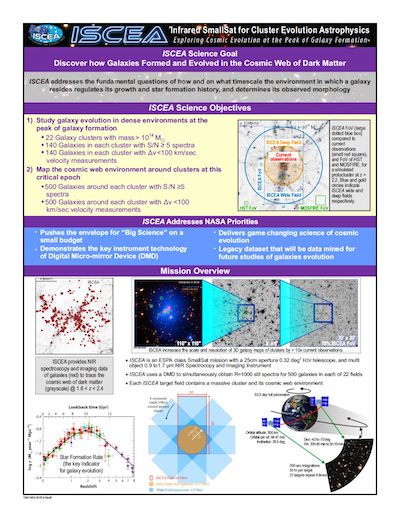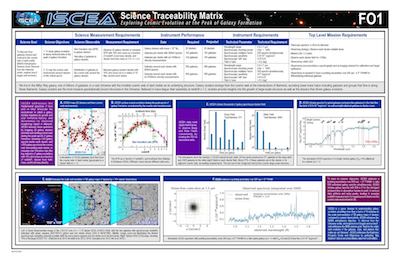
Overview
The Infrared SmallSat for Cluster Evolution Astrophysics (ISCEA) is a 25-centimeter aperture space telescope with a large field of view (0.32 square-degrees). ISCEA was selected by NASA for a mission concept study in September 2018 and was under consideration by NASA in early 2020. Unfortunately, it only made second place in the final evaluation. It would have launched around 2024/2025 and the mission would have been led by IPAC, which would also serve as the ISCEA Science Data Center.
ISCEA primary goal is to study galaxy clusters in the mid-ages of the Universe via spectroscopy. Specifically, it would measure the star formation properties of galaxies in dense cluster environments as well as the field to understand how galaxies evolve in these large-scale structures. In addition, ISCEA would be a path-finder for new technology in space, namely so-called digital mirco-mirror device (DMD), that allow efficient multi-object spectroscopy.
My Contribution
If accepted, I would have been the Science Operation Center deputy lead for ISCEA. In the preparation stages, I led science and technical studies including simulations to maximize the efficiency of the observations and to assess the quality of the resulting spectra, taking into account the pointing stability of the satellite.
More on this topic:
ISCEA @ IPAC NASA news featuring ISCEA

